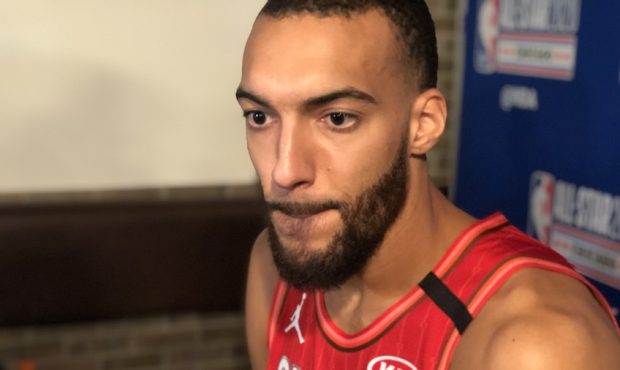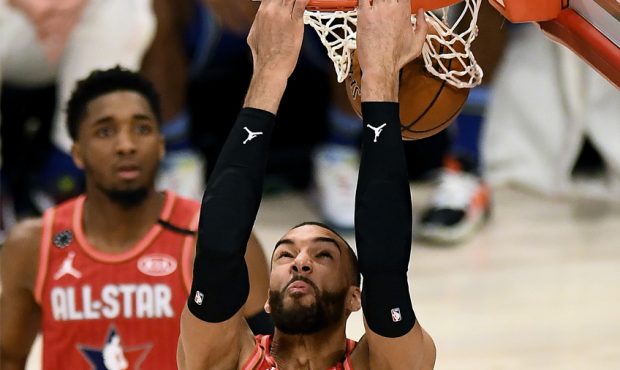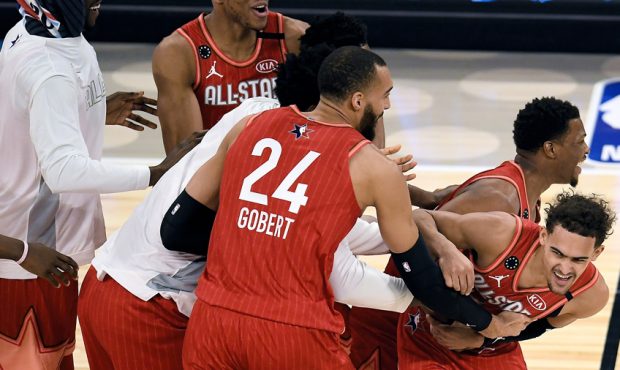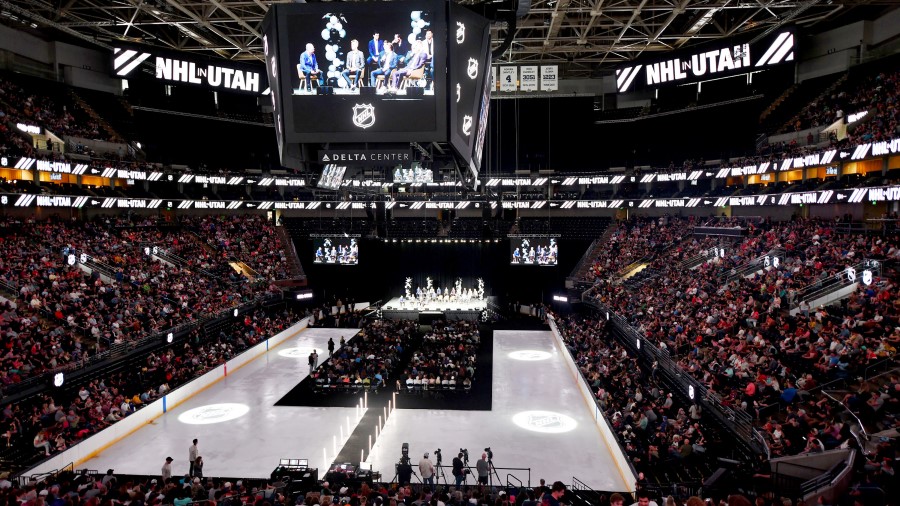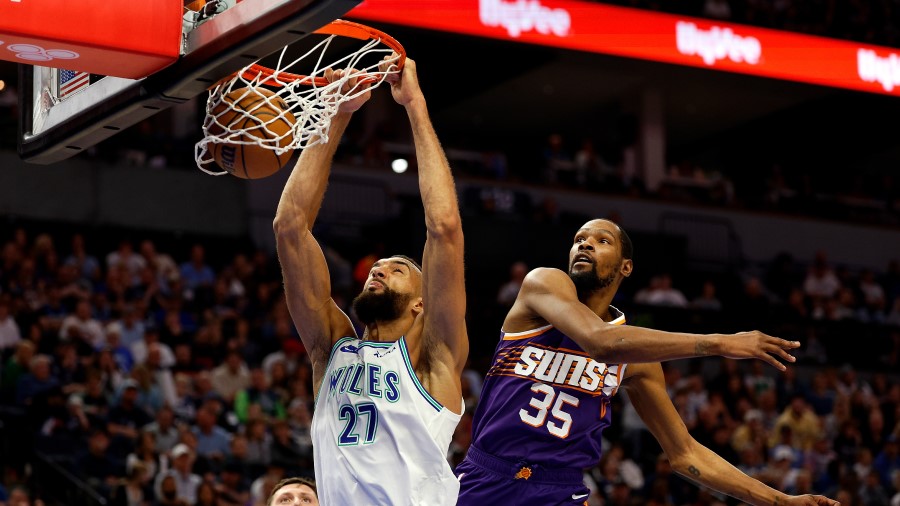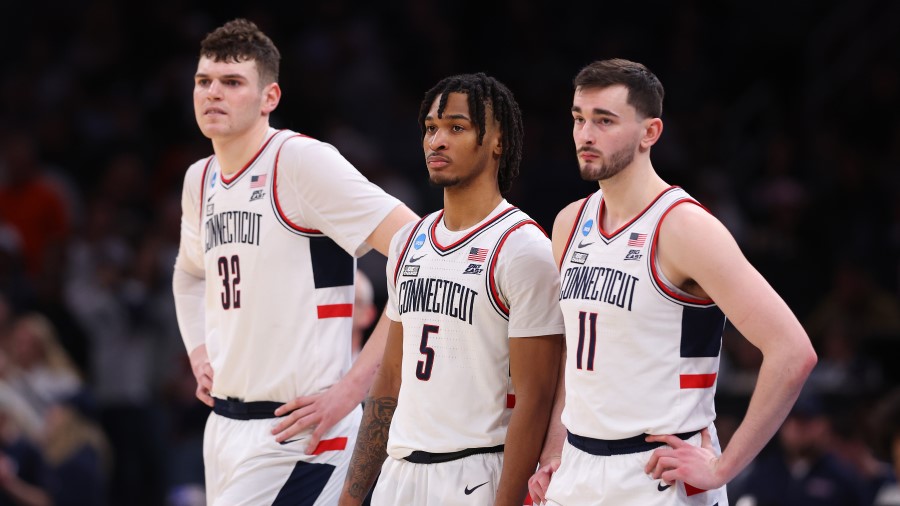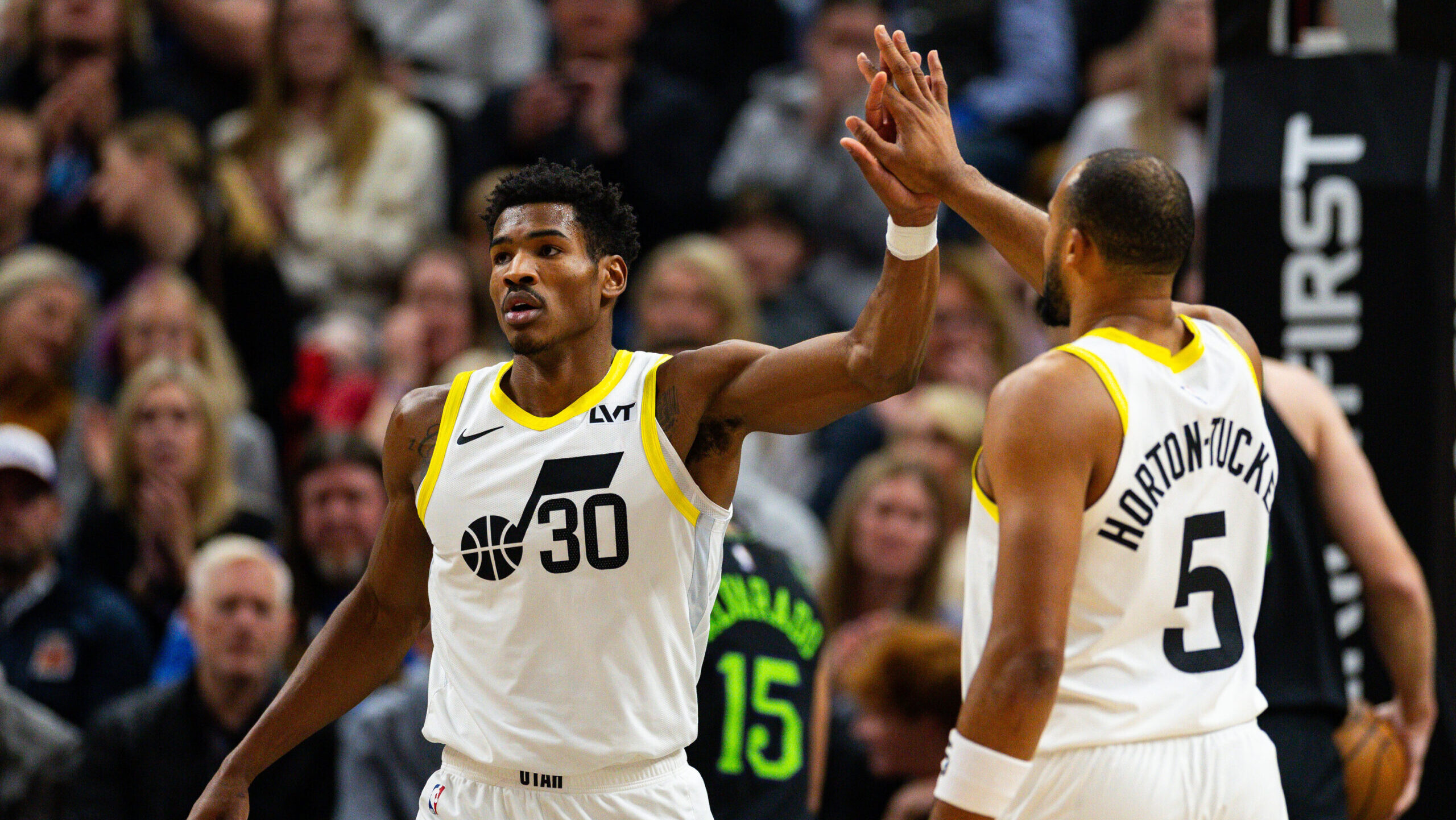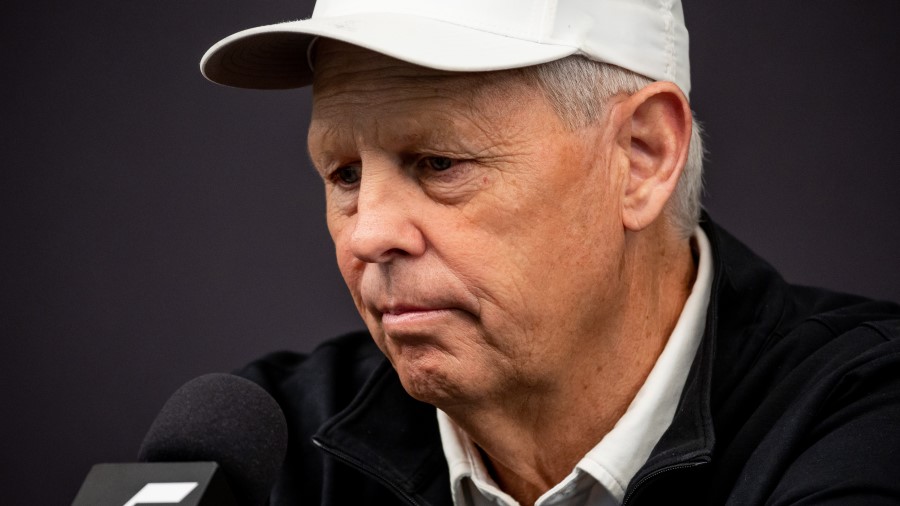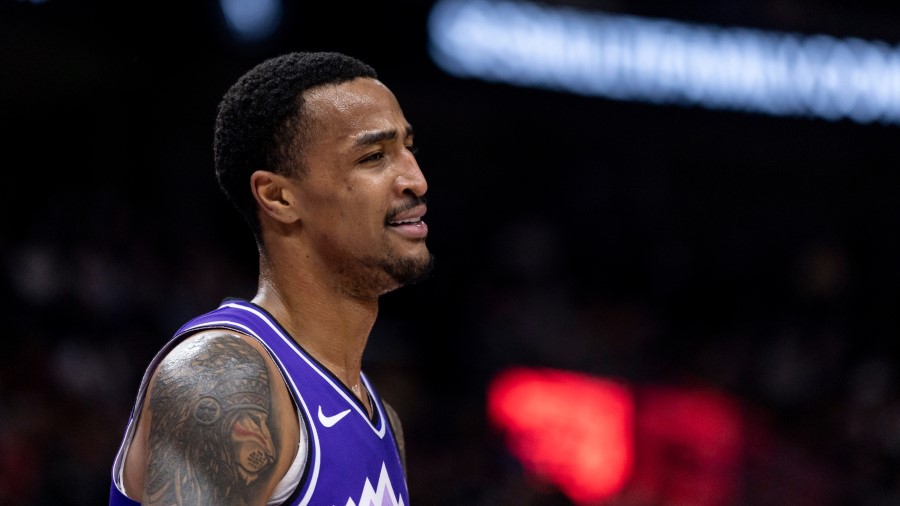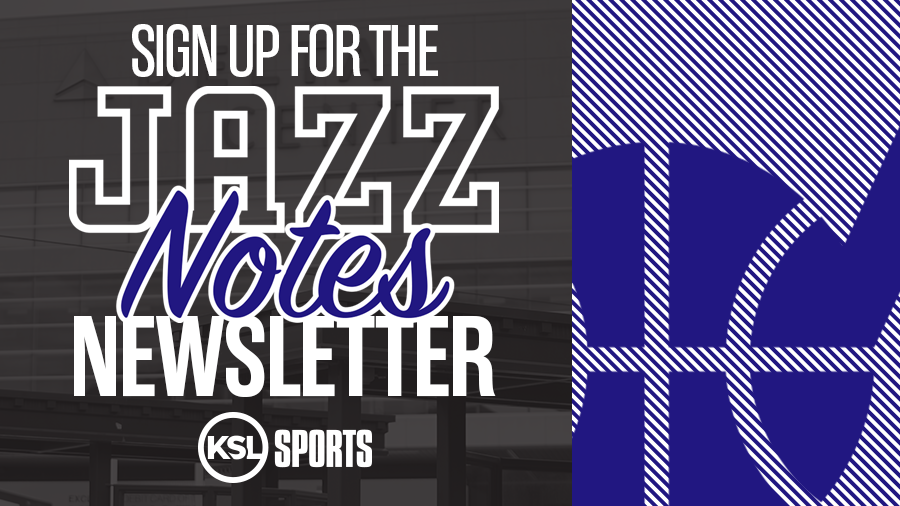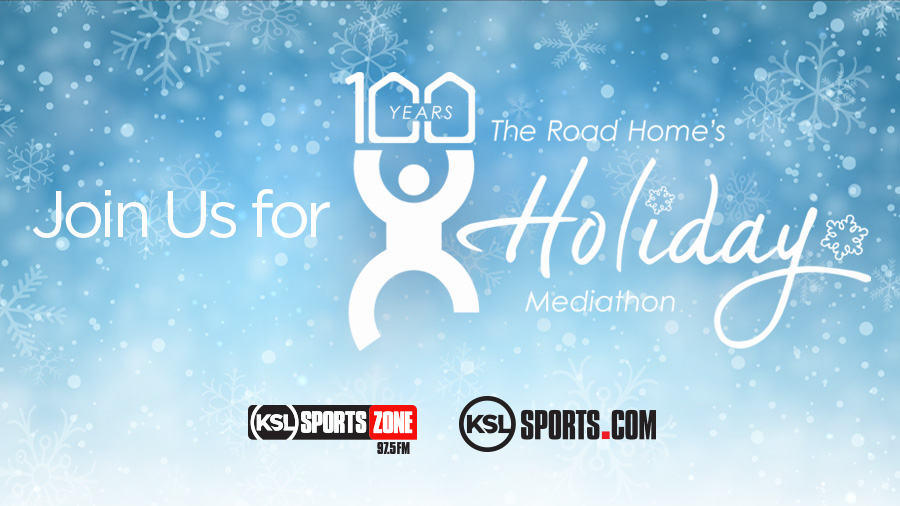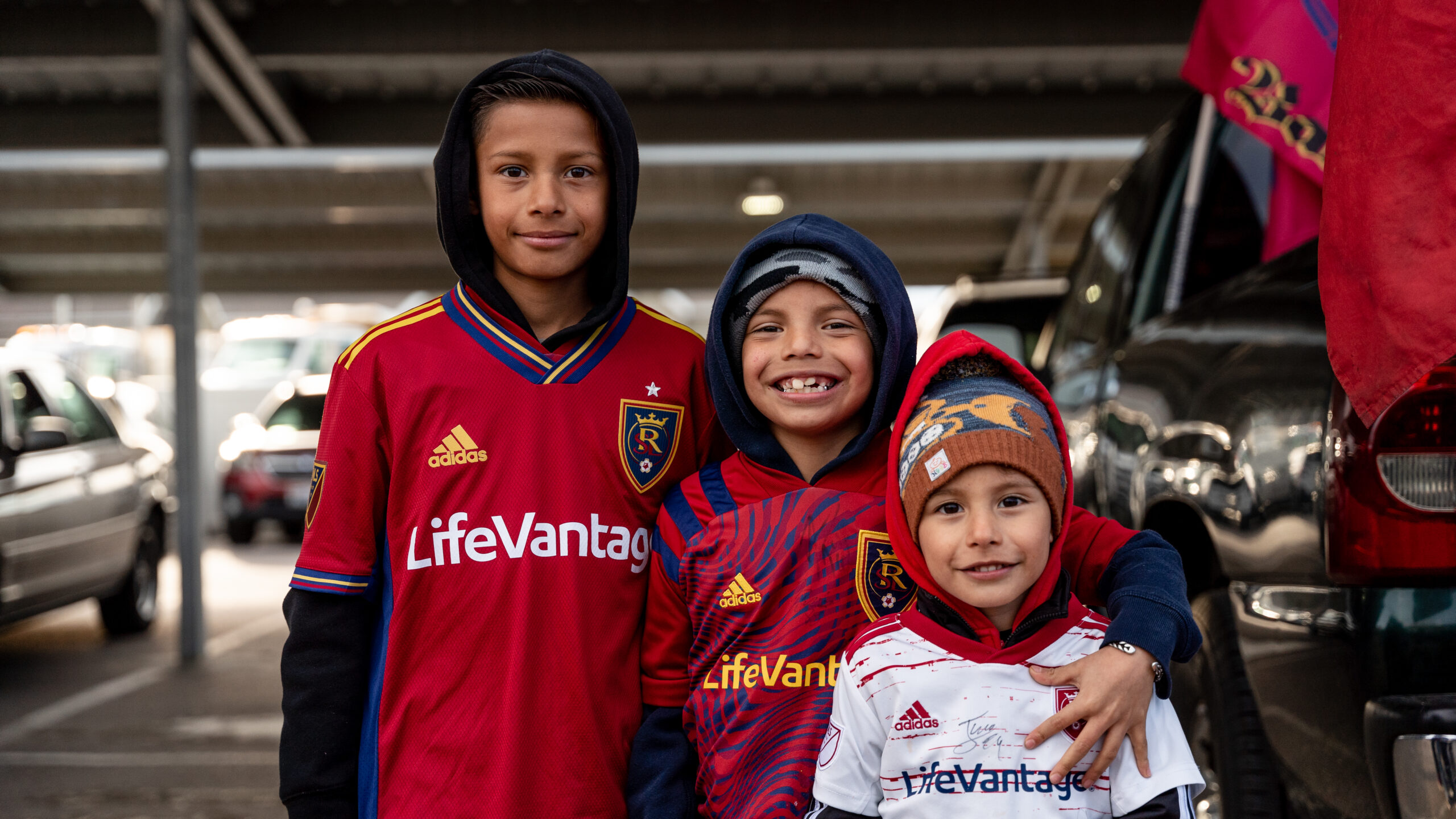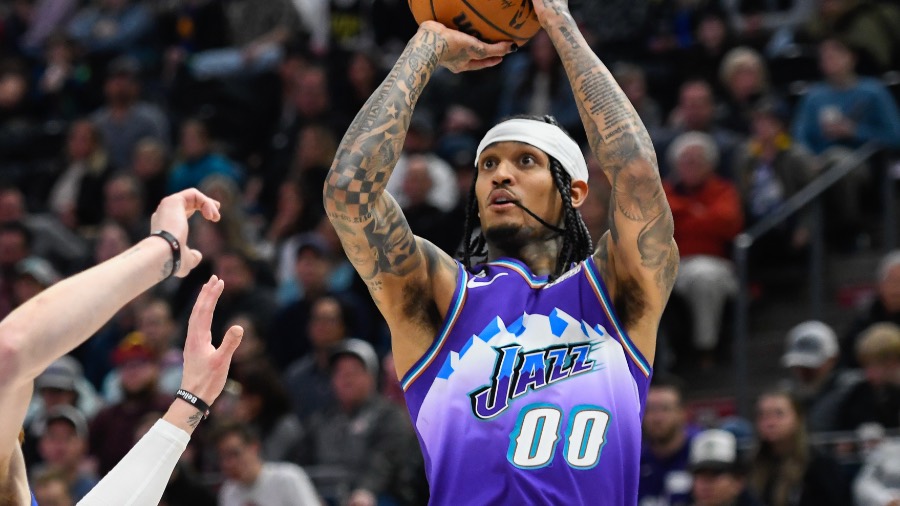Inspecting The Utah Jazz At The All-Star Break
Feb 17, 2020, 2:00 PM | Updated: 2:04 pm
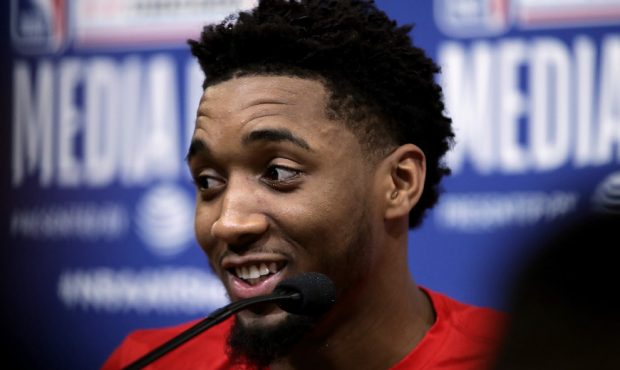
CHICAGO, ILLINOIS - FEBRUARY 15: Donovan Mitchell of the Utah Jazz speaks to the media during 2020 NBA All-Star - Practice (Photo by Jonathan Daniel/Getty Images)
(Photo by Jonathan Daniel/Getty Images)
CHICAGO, Illinois – The NBA All-Star weekend was an enormous success for the Utah Jazz, with Rudy Gobert proving to the league that not only is one of the league’s most imposing players, but he brings a level of excitement that fits in with the All-Star spectacle.
There were serious questions about how Gobert would fit at All-Star weekend, both on and off the floor. Gobert has a relatively private personality compared to most NBA stars, including Jazz teammate Donovan Mitchell who is one of the more gregarious players in the league. Gobert presents a more serious, introverted tone, similar to Kawhi Leonard, without the Larry O’Brien trophies.
As a result, Gobert has a salty reputation around some NBA fanbases that isn’t entirely representative of what he’s like to communicate with professionally on a daily basis. Gobert has a hyper-focus for personal improvement, and it can come off as a superiority complex, but truthfully like his game, it’s simply a little more nuanced.
It’s easy to dismiss Gobert’s game as under-skilled compared to some of the other big men appearing at All-Star weekend. After all, first-time All-Stars Bam Adebayo and Domantas Sabonis both made the finals of the NBA Skills-Challenge. Nikola Jokic already holds the title of the greatest passing big man in NBA history, and Anthony Davis is an offensive threat nearly anywhere inside of half court.
At first sight, the majority of Gobert’s game is based around catching lob passes, finishing dump off opportunities, and being a rim protector. While it should be noted that none of these aren’t bad skills to possess, they may not burst with the same individual flash that other All-Stars bring to the table.
Gobert isn’t simply a lob catcher however, he’s one of, if not the best player in the league at positioning himself to catch alley-oops at any point in the shot clock. He’s always looking for an opportunity to bail out a teammate as a lob target near the rim. As a result, Gobert has turned himself into one of the most clutch players in the league, despite not being a traditional isolation shot creator.
He’s also a reliable option for pass-happy guards, as was evidenced by his instant connection with Team Giannis point guard Trae Young. Young is known as a shooting and scoring threat, but has been one of the league’s leading assist men since he first suited up for the Atlanta Hawks last season.
Gobert found himself in position to benefit from Young’s unselfishness repeatedly throughout the night, most notably late in the third quarter when he caught a lob at the rim with fewer than three seconds remaining to tie the third-quarter score at 41.
🎥👇🏽Rudy Gobert's dunktastic #NBAAllStar performance.#TakeNote #UtahJazz @kslsports pic.twitter.com/0uYlve3JwV
— Sam Farnsworth (@SFarnsworthKSL) February 17, 2020
It’s not unreasonable to suspect that the majority of casual NBA fans exposure to Gobert has come over the Jazz last two playoff series, both quick dismissals at the hands of the Houston Rockets. In both series, Gobert’s normal influence was rendered less apparent due to Mike D’Antoni’s small-ball, five-out style of play.
With Gobert stuck between the Rockets’ mid-range jump shots and the threat of Clint Capela catching lob passes, he regularly found himself in no-mans-land against one of the league’s most unique offensive teams.
Despite dominating the Fifa World Cup this past summer, including playing a key role in defeating Team USA, Gobert’s performance at the All-Star game may be the most important national performance of his young career.
Having proved he not only belongs on the floor with the rest of the NBA stars, but by showing he can add his own unique flair on the offensive side of the ball, Gobert may have punched his ticket to the next several All-Star games as undoubtedly one of the league’s best, and most exciting big men.
Chicago
Chicago did a wonderful job hosting All-Star Weekend, both providing a high level of ease to media members attempting to cover the events, and avoiding any major issues that may come with hosting the game in a major city.
Often times it seems that major cities can struggle with events like this by either over complicating the coverage process or under promoting a major sporting event. Chicago offered a welcome balance to both the magnitude of the event and the ease of operation to make the weekend’s events both entertaining and accessible.
#NBAAllStar pic.twitter.com/eha96BEEgo
— KSL Sports (@kslsports) February 16, 2020
There is some mystery about whereabouts of the greatest athlete both in Chicago and NBA history, Michael Jordan.
After all, the event was hosted at the United Center, the house that Michael built, with a statue of the league’s greatest player stationed at the arena’s entrance. Based on the raucousness of the crowd when Jordan’s name was mentioned in the tribute to Chicago before the All-Star introductions, it seemed obvious to have Jordan play a more central role.
Understanding how intelligent the league is, it’s safe to assume Jordan’s absence from the festivities was of his own choosing, and not an attempt from the league to hide the Hall of Famer.
With the passing of Kobe Bryant and David Stern, both inseparable figures in Jordan’s legacy, an appearance by the Charlotte Hornets owner would have been the cherry on top of an excellent All-Star weekend.
Donovan Mitchell
Donovan Mitchell struggled over his last several weeks heading into the All-Star break, appearing tired on the floor, turning the ball over, and shooting poor percentages from the field. Mitchell appeared to have found the remedy for his troubles in the Jazz 15 point victory over the Miami Heat before heading into All-Star weekend, but once again appeared slightly out of sorts during the league’s superstar showcase.
Mitchell missed a dunk in the game in a similar fashion to the way he’s missed his signature high flying dunk in recent weeks during the regular season.
Donovan Mitchell had a very blunt answer for those who doubt @UtahJazz teammate Rudy Gobert.
“I think they should shut up.” pic.twitter.com/45DbrRfKR6
— KSL Sports (@kslsports) February 17, 2020
Having played all summer with Team USA, after a full season with the Jazz last year, Mitchell may not have the legs he’s accustomed to up to this point in his career.
If that is the case, a few days away from basketball after the All-Star break and before the Jazz host the San Antonio Spurs Friday may benefit the third-year guard for the final stretch of the season.
The Final Stretch
As the Jazz return to the regular season, 28 games will determine the team’s fate as they head to the postseason for the fourth straight year.
The Jazz are beneficiaries of a five-game homestand, their longest of the season by a large margin coming out the break. For the players on the team, that means that by the end of the streak, they’ll have had the luxury of sleeping in beds of their choosing for 20 straight nights, an unheard-of stretch in the NBA.
Jordan Clarkson has a few simple, very human desires for the All Star break. pic.twitter.com/8xQPCWIWV1
— Ben Anderson (@BensHoops) February 13, 2020
As the team recuperates from the normal wear and tear of an NBA season, including the continued rehab of Mike Conley’s hamstring and knee injuries, the Jazz may receive an enormous boost from the extended time in their own homes.
Over the final 28 games, the Jazz face just 12 teams with a winning record at the All-Star break. 10 of the team’s games are against teams that have no interest in making a playoff push at all. The remaining six games are against teams the Jazz should be favored to beat, three of which are played in Salt Lake City.
Overall, 16 of the team’s final 28 contests are at home.
If the Jazz can continue their recent high level of play, with a franchise-best 36 wins at the All-Star break, an 18-10 close to the season should be achievable.
The ideal situation for the Jazz heading into the postseason may be to find themselves holding either the second or third seed in the West, with Denver occupying the other position. Despite being 0-2 against the Nuggets this season, the idea of avoiding Kawhi Leonard and the Los Angeles Clippers, or LeBron James and the Los Angeles Lakers in the second round of the playoffs would give the Jazz their best opportunity to advance to the Western Conference Finals. Pitting the two Los Angeles powerhouses against one another assuming they advance to the second round of the postseason would significantly increase the odds of escaping the Western Conference minefield.
At this point, if the Jazz could choose their ideal opponent in the first round of the playoffs it may be the Dallas Mavericks. Despite Dallas carrying the league’s best offense, the Jazz are 2-0 against the Mavericks, with both victories coming in the last month.
Spin + Jam pic.twitter.com/hZS8r98Vt6
— Utah Jazz (@utahjazz) February 11, 2020
While Dallas would provide the Jazz with difficulty of defending star Luka Doncic over a Seven game series, the team seems to have found success offensively attacking Kristaps Porzingis in the pick and roll. Allowing the Jazz to execute their bread and butter offensive approach each trip down the floor would be a significant boost to a roster that has yet to play a postseason series together.
The Oklahoma City Thunder and Houston Rockets appear to be the lost likely potential opponents along with Dallas in the West, but provide more matchup problems for the Jazz. Chris Paul has long been a thorn in the side of the Jazz defense, and has proven that once again over the teams first two meetings of the season.
Houston’s dedication to small ball has given the Jazz problems for each of the last two postseasons.
The Jazz return to the floor against the San Antonio Spurs Friday night in Salt Lake on the front end of back to back games, before hosting the Rockets Saturday night.

